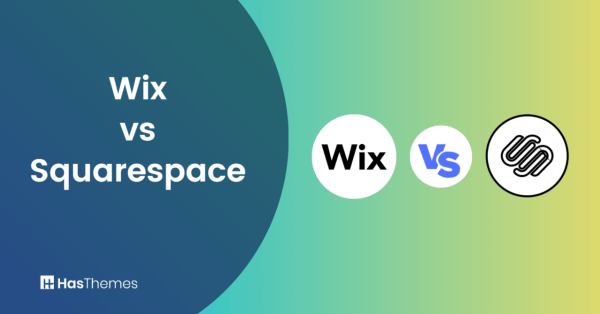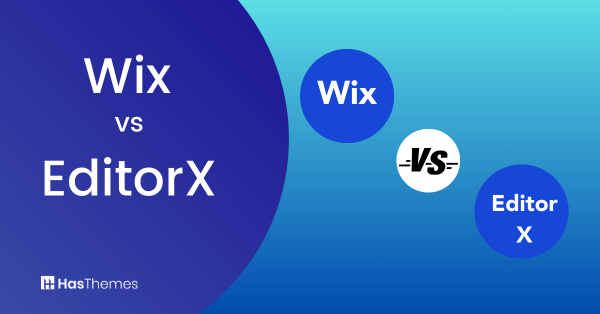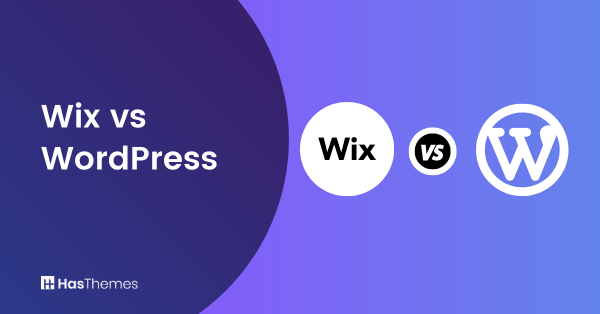How to Choose a Website Builder: The Ultimate Guide
Are you struggling to decide on the right website builder to build your online presence? We understand the struggle to find one that meets your needs. With so many options out there, it can be difficult to know which is best suited for your unique vision.
Check out our Ultimate Guide for WooCommerce users on how to choose a website builder. We cover all the essential criteria and considerations, from features to cost, to make your decision stress-free. Empower yourself with practical advice and valuable insights to find your ideal fit. Let’s get started!
🚀Boost Your Online Store Sales with Mavon Shopify Theme!
Mavon – Your ticket to success! 🚀 Boost revenue with conversion-focused features and intuitive design, turning visitors into loyal customers.
What is a Website Builder?
First things first, let’s define what a website builder is. A website builder is a tool that allows you to create and design your website without knowing any coding languages.
This means anyone can use a website builder to build a professional-looking website regardless of technical skill level.
However, not all website builders are created equal. Some cater to beginners with drag-and-drop features, while others offer advanced options for experienced developers.
Importance of choosing the right website builder
In today’s digital world, having a website is essential for businesses of any size. It’s your online storefront and the first point of contact for potential customers. With a website, you can showcase your products or services, provide information about your business, and even sell directly to customers through an ecommerce platform.
Here are some key reasons why choosing the right website builder is important:
User-friendly interface
A good website builder should be easy to use for all levels of technical expertise. This means you can build and design your website without coding knowledge.
Customization options
Make your website truly reflect your brand and vision. Choose a website builder that gives you the power to customize every aspect, from templates and themes to fonts and color schemes. With endless possibilities at your fingertips, you can create a site that is truly unique.
Mobile responsiveness
With the increase in mobile usage, having a website that is optimized for all devices is crucial. Ensure the website builder offers responsive design and preview options for different screen sizes.
Ecommerce capabilities
If you plan on selling products or services through your website, choose a website builder with ecommerce features such as secure payment gateways, inventory management, and shipping options.
SEO tools
Search engine optimization (SEO) is essential for improving your website’s visibility and ranking on search engines. Look for a website builder that offers built-in SEO tools or integrates with third-party SEO services.
Scalability
As your business grows, you may need to add more pages or features to your website. Choose a website builder that allows for scalability and has plans with different storage and bandwidth levels.
Support Genix
WordPress Support Ticket Plugin
A WordPress plugin adds the features of a comprehensive support ticket system to your WordPress site. Users may now create tickets and get help right from your WordPress site.
How to Choose a Website Builder for Your Website
When it comes to building a website, choosing the right website builder is crucial. Not only will it determine the overall look and functionality of your site, but it can also affect its success in terms of driving traffic, generating leads, and converting sales.
To ensure you make the right decision, you must consider various factors before choosing your website builder:
Determine Your Budget
When building a professional website, it’s important to consider your budget. It helps narrow down your choices and prevents overspending. Costs like domain registration, hosting, images, and copy should be accounted for.
Setting a budget allows you to focus on website builders that fit within your financial constraints, ensuring you get the best value for your investment.
While some website builders offer free plans, most charge between $5 to $40 a month for business-friendly features. To save costs, you can choose plans with the necessary website services bundled together.
Some affordable website builders include Wix, IONOS, Squarespace, etc.
Ease of Use
Using a website builder is much simpler than coding and programming, but not all builders are equally user-friendly. Look for a drag-and-drop interface and an intuitive editor for easy customization.
Check user reviews to assess if a website builder is suitable for beginners. Their experiences will provide insights into potential challenges you may encounter.
Some examples of website builders with user-friendly interfaces include WordPress.com, Elementor Website Builder, and Shopify.
Features and Functionality
The features and integrations provided by a website builder can greatly enhance the functionality of your site. Some important features include ecommerce capabilities, SEO tools, mobile responsiveness, and social media integration.
Choose a website builder that offers the features you need for your website, whether selling products online or optimizing your site for search engines. Some examples of website builders with advanced features and functionality include Shopify and BigCommerce.
SEO Tools
Having a well-designed website is great, but it’s also important to ensure potential customers can easily find your site. That’s where SEO (search engine optimization) tools come in.
Choose a website builder that offers effective SEO tools, such as keyword research, meta tags, and sitemaps, to help improve your website’s visibility on search engines like Google. Some website builders that offer effective SEO tools include Webflow, Weebly, and Squarespace.
Mobile Responsiveness
With more and more people accessing websites from their mobile devices, choosing a website builder that offers mobile responsive templates is crucial. This means the design of your website will automatically adjust to fit different screen sizes.
A mobile-responsive site improves user experience and helps with SEO rankings as Google prioritizes mobile-friendly sites in search results.
Some examples of website builders with mobile responsive templates include Squarespace and Wix.
Customer Support
Building a website can come with challenges, so choosing a website builder with excellent customer support is important. This can consist of live chat, email support, and help centers.
Look for website builders with responsive customer support teams who can assist you with any issues or questions you may have while building your website. Some examples of website builders with great customer support include Webflow, Hubspot, and Elementor Website Builder.
ShopLentor- WooCommerce Builder for Elementor & Gutenberg
A versatile page builder to build modern and excellent online stores with more than 100k Active Installations.
Some Popular website builders on the market
Now that you know what to look for in a website builder, let’s take a closer look at some popular options available today:
Hubspot
Hubspot is a website builder and marketing tool that helps businesses create and optimize their online presence. It provides a suite of tools for businesses to attract visitors, convert leads, and close customers.
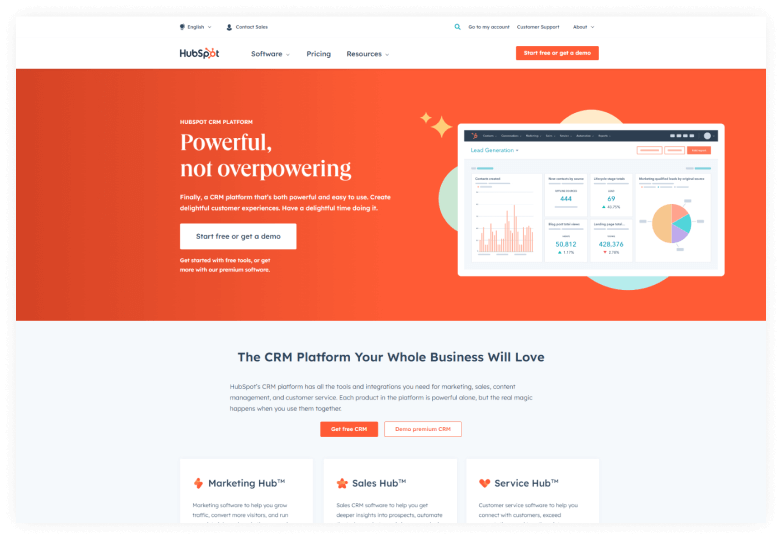
Hubsport offers CRM, marketing, sales, customer service, and content management features, empowering users with functionalities like email marketing, social media management, lead generation, analytics, and more.
HubSpot’s integrated approach and user-friendly interface make it popular among businesses aiming to streamline their marketing efforts and foster customer relationships.
Pros:
- Offers advanced marketing tools like SEO optimization, landing pages, and analytics.
- User-friendly and customizable templates.
- All-in-one platform for website building and online marketing.
Cons:
- Limited customization options compared to other website builders.
Pricing:
Hubspot offers a free plan with basic features, while premium plans start at $216/yr for their marketing hub and go up to $43,200/yr for enterprise level.
Best for:
Hubspot is best for businesses looking to streamline their marketing efforts with an all-in-one solution and those willing to invest in advanced marketing tools.
👉Read Shopify vs Squarespace: Which is on top of eCommerce platforms?
Webflow
Webflow is a powerful design-centric platform that allows users to create professional websites without the need for coding. It offers a visual interface and advanced design capabilities, enabling the creation of responsive and visually stunning websites.

Webflow caters to designers, agencies, and creative professionals seeking extensive design flexibility and control over their website’s aesthetics and functionality.
Pros:
- Drag-and-drop interface for easy customization.
- Advanced design features and highly customizable templates.
- Built-in SEO tools to optimize website ranking.
Cons:
- Can be expensive for small businesses, with additional fees for high traffic and ecommerce features.
- May require some technical knowledge for advanced customization.
Pricing:
Webflow offers a free plan with limited features, while premium plans start at $14 per month for personal websites and go up to $39 per month for advanced business websites.
Best for:
Webflow is best for designers and creative professionals who want complete control over the design and functionality of their websites. It is also suitable for small businesses that require advanced SEO tools.
30+ Top-notch Webflow Templates
Take your website design to the next level with the stunning collection of Webflow templates.
Weebly
Weebly is a user-friendly website builder known for its simplicity and drag-and-drop functionality. It offers a straightforward and intuitive platform suitable for beginners and small businesses. With various customizable templates, integrated e-commerce options, and a mobile app, Weebly enables users to create professional-looking websites easily.

Pros:
- User-friendly interface makes it easy to navigate.
- It offers competitive pricing plans.
- Comes with robust e-commerce capabilities.
- Provides a dedicated mobile application.
Cons:
Limited design flexibility compared to other builders.
Pricing:
Free plan available. Paid plans start at $6/month.
Best for:
Small businesses, entrepreneurs, and beginners looking for a straightforward website setup.
Squarespace
Squarespace is a sleek and user-friendly website builder known for its visually stunning templates and ease of use. It offers an array of beautifully designed templates suitable for various purposes, from portfolios to e-commerce sites.

With its drag-and-drop interface and built-in features like blogging tools and integrated e-commerce, Squarespace caters to creatives and businesses seeking an elegant online presence without extensive technical know-how.
Pros:
- Integrated e-commerce capabilities that simplify the process of setting up an online store.
- Visually stunning and highly customizable templates.
- Excellent design tools that provide flexibility and creativity.
Cons:
- Limited third-party app integrations.
- Pricing may be high for some.
Pricing:
It starts at $16/month (website plans) and $27/month (e-commerce).
Best for:
Users who want a user-friendly website builder with advanced customization options.
👉 Learn Shopify vs Woocommerce: Which eCommerce Platform is Better now in 2024?
Wix
Wix is a versatile website builder known for its user-friendly interface and comprehensive features. Offering a robust drag-and-drop editor, it allows users to create stunning websites without any coding expertise.
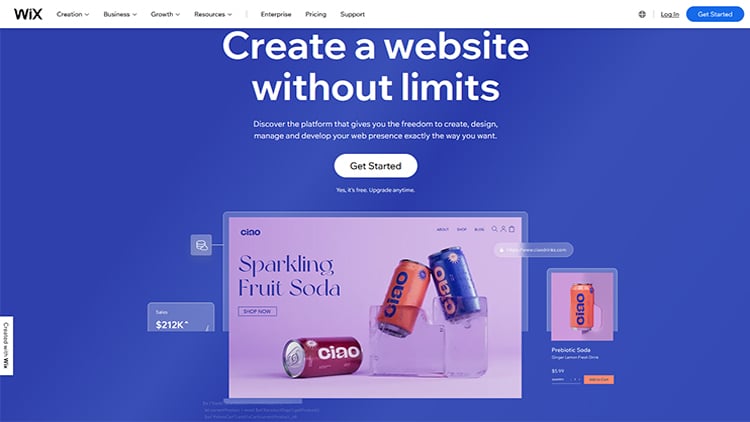
With its vast collection of templates, Wix caters to various industries and purposes, from small business sites to portfolios and online stores. Its App Market extends functionality, providing diverse add-ons for enhanced website capabilities.
Best for:
Small businesses, artists, freelancers, and those looking for a wide range of features.
Pros:
- User-friendly drag-and-drop builder.
- Wide selection of apps.
- The AI-powered design provides intelligent optimizations.
Cons:
- Limited flexibility in switching templates.
- non-intuitive SEO options.
Pricing:
Free plan available. Paid plans start at $4/month.
Best for:
All businesses with an online presence.
👉 Check Webflow vs. Squarespace: A Comprehensive Comparison
Elementor Website Builder
Elementor is a leading WordPress page builder plugin known for its powerful and intuitive drag-and-drop interface. A user-friendly interface enables users to create custom websites easily, offering various design elements, templates, and widgets.
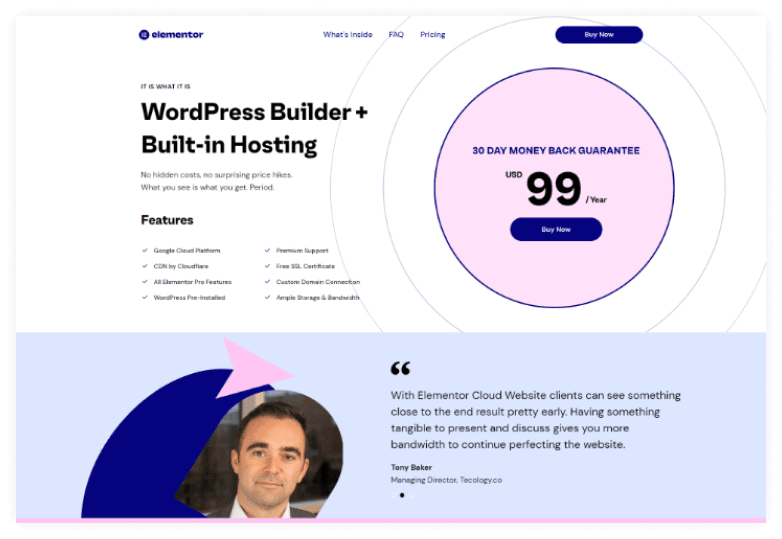
This website builder empowers beginners and professionals to design visually stunning websites directly within the WordPress platform, providing live editing capabilities and comprehensive design features.
Pros:
- A wide array of sophisticated design tools and customization features.
- Live editing capabilities.
- A comprehensive collection of widgets available for seamless integration.
- An intuitive and easily navigable interface.
Cons:
- WordPress-centric.
- Potential conflicts with themes/plugins.
Pricing: Elementor offers premium plans that start at $59 per year for personal use and go up to $399 annually for agency-level features.
Best for:
WordPress users, designers, developers, and those wanting full design control.
👉 Check Squarespace vs HubSpot: Which One is the Best for You?
Zyro
Zyro is an AI-powered website builder that simplifies the website creation process with its intuitive platform. Offering a range of modern templates and utilizing AI-generated designs, Zyro enables users to build professional-looking websites quickly.
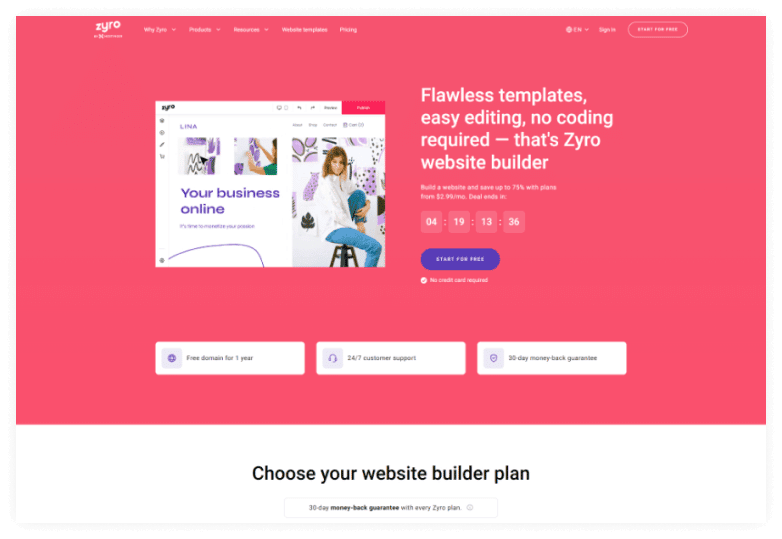
It’s ideal for beginners and small businesses seeking simplicity and sleek design without extensive technical knowledge. With affordable pricing plans and e-commerce capabilities, Zyro is a user-friendly option for those looking for a straightforward website-building experience.
Pros:
- Utilization of artificial intelligence (AI) for generating designs.
- Cost-effective subscription plans or pricing structures.
- Integration of robust e-commerce functionalities.
Cons:
- Limited customization.
- Fewer advanced features.
Pricing:
Premium plans start at $1.99 monthly for personal websites.
Best for:
Beginners, small businesses, and those seeking simplicity and AI-generated designs.
👉 Check Marketo vs Hubspot: Which One is Right for You?
GoDaddy
GoDaddy Website Builder is a user-friendly platform offering a straightforward and intuitive approach to creating websites. With its drag-and-drop editor and various customizable templates, users can quickly build a visually appealing website without the need for extensive technical skills.

Additionally, GoDaddy provides hosting services, domain registration, and e-commerce solutions. It is an all-in-one option for individuals, entrepreneurs, and small businesses looking for a hassle-free website-building experience.
Pros:
- Inclusion of domain services within the package.
- Availability of comprehensive e-commerce features.
- User-friendly interface.
Cons:
- Limited design flexibility.
- Less intuitive than competitors.
Pricing:
Free plan available. Paid plans start at €5.49 /mo.
Best for:
Small businesses, entrepreneurs, and those preferring bundled services.
👉 Check Wix vs HubSpot CMS: Which One is the Best for You?
Which Website Builder is Best?
Choosing the right website builder ultimately depends on your specific needs and goals. If you are a designer or creative professional looking for complete control over design and functionality, Webflow or Elementor may be your best option.
On the other hand, if you are a beginner or small business owner looking for simplicity and affordability, Weebly or Zyro may be better suited for you. Squarespace and Wix are popular for their visually appealing templates and advanced features, making them suitable for a wide range of users.
Ultimately, it’s important to consider factors such as budget, design needs, technical skills, and ecommerce requirements when choosing the right website builder for your specific needs. Remember to prioritize user experience and functionality regardless of your website builder to create a successful online presence for your brand or business.
Frequently Asked Questions
-
How does a website builder work?
Website builders use drag-and-drop interfaces and customizable templates to allow users to create a website easily without coding or technical knowledge. Users can choose from various design options, add content and features, and customize their website to their needs.
-
Do I need technical skills to use a website builder?
No, most website builders are designed for beginners without coding or technical knowledge. They offer user-friendly interfaces and easy-to-use tools for building a website. However, certain advanced customization options may require some technical skills.
-
Why you should use a website builder?
Website builders provide an easy and affordable way to create a professional-looking website without needing technical skills or hiring a web developer. They also offer a range of features such as ecommerce capabilities, SEO tools, and customizable templates to help you build a successful online presence for your brand or business.
-
What are the essential features to look for in a website builder?
When choosing a website builder, it’s important to consider what features are essential for your specific needs. Some important features include customizable templates, a drag-and-drop interface, ecommerce capabilities, SEO tools, and user-friendly design options.
-
Can I switch website builders in the future?
Yes, most website builders enable you to move your website content to another platform if necessary. However, doing this might require technical knowledge or customer service support. Researching and thinking about the possibility of switching website builders before you decide on one is crucial.
-
Are there any hidden costs with using a website builder?
While most website builders offer affordable plans, it’s important to carefully review the terms and conditions to uncover hidden charges, such as transaction fees, additional costs for certain features, or limitations on storage and bandwidth. It’s always best to understand what you are paying for before committing to a website builder.
-
Is there any drawback to using a website builder?
One potential drawback to using a website builder is the limited customization options compared to building a website from scratch. This may be an issue for more advanced users or those with specific design needs.
Additionally, some website builders may have restrictions on certain features or design elements that can impact your website’s overall functionality and user experience. Researching and considering these factors before choosing a website builder is important.
Conclusion
To sum it up, there is no one-size-fits-all when it comes to choosing a website builder. Depending on your level of expertise and design vision, the cheapest or most well-known builder might not be the best option for you.
Considering your skills, goals, and budget is crucial when making a decision. Investing in a reliable solution like a website builder is key to the success of your business online. Choosing the right one is an important part of this process.
With these steps, you can be confident that you have all the information necessary to make an informed decision on how to choose a website builder that works for you now and in the future.
So go ahead and explore the different options available, and find the best website builder that suits your needs!


